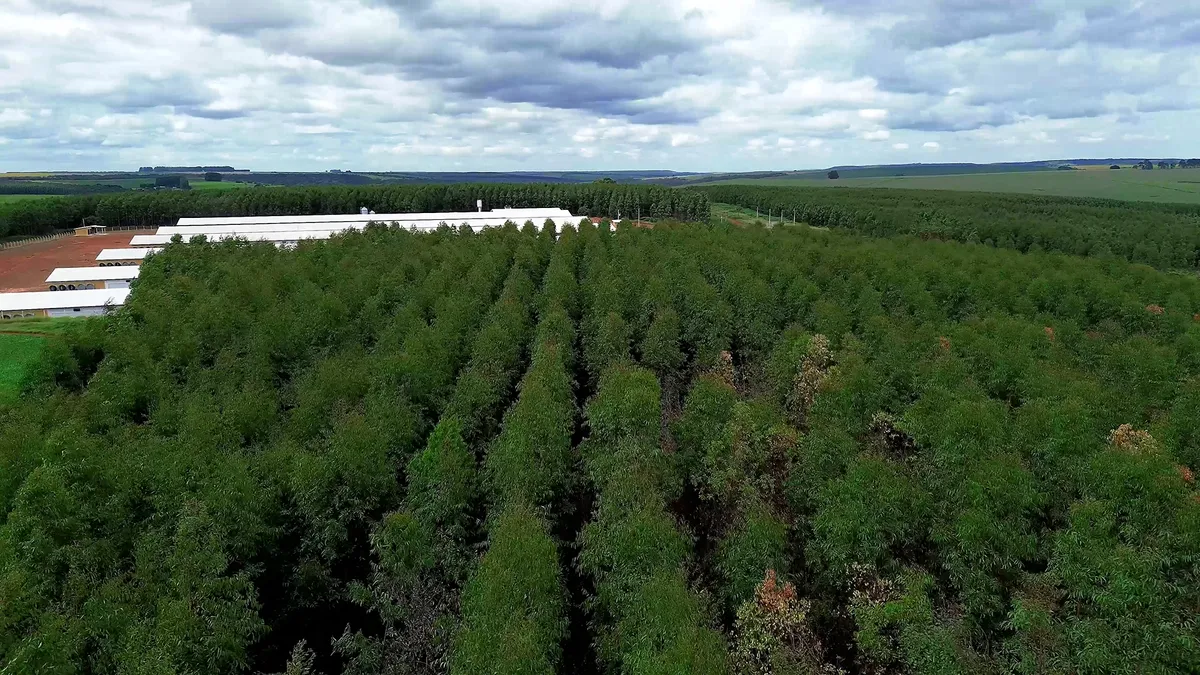Environment
Copacol is a model in renewable energy production

With sustainable practices from the field to industry and continuous investment in alternative energy production, reforestation, adequate waste disposal and water reuse, Copacol’s cooperation with nature becomes an example for companies throughout Brazil. The Cooperative’s Biogas Project installed at the UPL (Suckling Pig Production Unit), in the community of Carajá, municipality of Jesuítas, for example, provides economic and environmental sustainability to the Cooperative, which is a model in the production of renewable energy.
In operation since December 2022, UPL produces around 20 megawatts of energy per day, a volume that meets the entire capacity of the Unit itself, while the surplus meets part of the demand of the DC (Distribution Center) in the community of Nossa Senhora da Penha , municipality of Corbélia. The Copacol Biogas energy generation system has the capacity to process 15 thousand tons of organic waste annually, with an economic potential of R$7 million per year, and generates clean energy. This example of using clean energy in the Cooperative’s production was presented during the 6th South Brazilian Biogas and Biomethane Forum, held in the city of Chapecó, Santa Catarina.
Copacol’s Environmental Manager, Celso Brasil, and the Environmental Operational Supervisor, Everson Garghetti, represented the Cooperative at the event, which was attended by representatives of national and international companies that use biogas as a source of renewable energy for provide sustainability to your business. “We present a case of our Biogas Project: idea, implementation, monitoring, functionality and operation of the energy system that, using solid waste, provides environmental and economic sustainability for the Cooperative. We show, together with the panel focused on macrobiota, the entire operational system of the biodigesters and the use of micronutrients in the biodigesters, which allowed the addition of 180 cubic meters of pig waste and 45 tons of waste from poultry and fish industrial activities daily, contributing for the generation of biogas that produces clean energy”, highlights Brasil.
COPACOL AND THE ENVIRONMENT
Being sustainable is part of Copacol’s principles. Therefore, valuing environmental practices makes the Cooperative a reference in respect for the environment. Last year alone, 6.7 thousand tons of organic waste were processed by the Plant in Jesuítas. Furthermore, R$3.8 million were saved with the production of electricity in the three UPLs, in Cafelândia, Formosa do Oeste and Jesuítas, and in the UPD (Weaning Production Unit) in Jesuítas.
FORUM
The Forum brought an approach to a new trend for companies that operate in the generation of Biogas, energy that can be transformed into biomethane for the production of clean fuel, making the businesses of companies that are using this energy source more sustainable. “The event brought the following approach: biogas is raw gas and biomethane is the gas that has gone through the purification process, where all impurities are extracted and transformed into clean, high-quality fuel, at the levels of CNG [Vehicle Natural Gas ]. In view of this, we realized that the trend is towards the use of biomethane, with its use and application in company activities being more viable rather than the direct use of biogas”, explains the manager.
READ TOO

Environment
25/08/2025
Friato Reinforces Commitment to Recycling and Offsets Over 36 Tons of Packaging Waste
Partnership with eureciclo strengthens the circular economy and generates positive impact in Brazil’s recycling chain In 2024, Friato reached the milestone of […]
Read more
Environment
15/02/2024
Animal protein companies intensify their search for more renewable energy sources, according to ABPA research
Animal protein companies in the country are investing in increasing the use of renewable sources for the sector’s production. This is what […]
Read more
Social Development
15/12/2024
Coasul and Ihara join forces in solidarity initiative to support vulnerable families in São João
Donation of food baskets highlights joint social commitment between the cooperative and agrochemical company Agricultural cooperative Coasul and multinational agrochemical company Ihara […]
Read more
